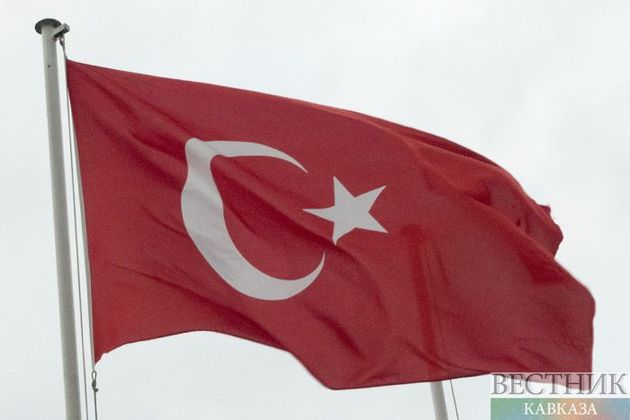Turkish President Recep Tayyip Erdoğan is threatening with a new military operation against Kurdish militants in Syria. Why is Ankara dissatisfied with the situation in the region beyond the Euphrates, and how will Russia and the United States behave?
Two years ago, in October-November 2019, Turkey conducted its third military operation in Syria - "Peace Spring". Then the Turkish Armed Forces (TAF) managed to dislodge Kurdish militants from the People's Self-Defense Forces (YPG) group from an almost 100-kilometer zone between Ras al-Ain and Tel Abyad. The fighting ended after the intervention of Russia. Russian President Vladimir Putin invited his Turkish counterpart Recep Tayyip Erdoğan to meet in Sochi, where they signed a memorandum. According to it, the Kurdish units were supposed to be withdrawn at least 32 km to the south from the territories not taken by Turkey and the pro-Turkish opposition ("Syrian National Army"). Russian-Turkish patrols were planned to be introduce into the liberated territories. This has been achieved in a number of zones, but not everywhere.
Kurdish militants refuse to leave their positions, ignoring the agreement between Putin and Erdoğan. Moreover, YPG periodically attacks TAF. So, on October 10, unknown people using ATGM fired at a Turkish convoy near the village of Mari in the Azaz region of Aleppo province, as a result, the "Kirpi" armored car was hit. Ankara accused the YPG of the attack, the latter denied any involvement.
It is possible that during a meeting with Putin in Moscow on September 29, Erdoğan expressed dissatisfaction with the state of affairs in the region beyond the Euphrates. Anyway, two weeks later, on October 13, Turkish Foreign Minister Mevlüt Çavuşoğlu said: "Russia and the United States are also responsible for the attacks of the People's Self-Defense Forces / Kurdistan Workers' Party against Turkey." The claim against Russia is connected with the Sochi deal of 2019, against the United States - with the fact that the Syrian Kurds are supervised by the Americans and there are American bases in the Kurdish territories.
Thus, Turkey has been threatening to conduct a military operation in Syria against the YGP since about mid-October. After the attacks on the TAF by the Kurds, Erdoğan declared Turkey's "overflowing cup of patience" and that Ankara would soon eliminate the threat of "terrorists" on its own. On November 1, Erdogan repeated his threat. "Of course, the operation is carried out when it is needed. There is no way back from this ... If the PKK / PYD / YPG terrorist organizations oppose us, we will do everything what is necessary. We will not compromise on this issue," he said. On the same day, a source of RIA Novosti in the opposition said that the TAF was ready to launch a military operation on November 2 against the Syrian Democratic Forces (SDF), the backbone of which is YPG.
There are three main questions on the topic of the Turkish operation. Will it take place? How will Russia react? How will the US react?
Recalling the previous experience of Turkish operations in Syria, it should be noted that threats from Erdoğan's office and the Turkish Foreign Ministry were constantly before operations, and the threats found their practical implementation. In 2018, the Turks cleared Afrin ("Olive Branch") from the YPG, and in 2019 - part of the border zone beyond the Euphrates ("Peace Spring"). Now Erdoğan can also keep his word.
During the TAF attack in Afrin, Russia showed neutrality, having received a "free hand" for attacks against Damascus and the Russian Aerospace Forces in operations against the armed Syrian opposition. During the "Peace Spring" operation, Moscow offered its mediation. On the one hand, the Russian Federation knows how to make a profitable exchange, on the other hand, it can find a common language with Turkey in order to save the Kurds from complete defeat. What will Putin choose this time? If the Kurds of northern Syria agree to go under the flag of Damascus, President Bashar al-Assad, then the Turkish operation will lose its meaning. If the Kurds, again believing in the support of the United States, refuse the assistance of the Russian Foreign Ministry, they will face a third defeat from the TAF. In exchange for a Turkish operation in the region beyond the Euphrates, Moscow can gain control over areas in Idlib province up to the M4 highway for itself and its ally Assad.
The United States is formally responsible for its ally YPG, with whom it fought against ISIS* (*banned in Russia) in 2015-2016. In 2019, the Donald Trump administration reacted harshly and threatened to "bring down the Turkish economy" if the latter launched an attack against the YPG. However, the United States was never able to stop Turkey, in fact, betraying its ally in the person of the Syrian Kurds. It is possible that this time the White House will behave in the same way. Erdoğan had the opportunity to discuss the operation with Joseph Biden at a meeting on the G20 margins in Rome. It is known from open sources that Syria was among the topics they discussed. It is unclear whether Erdoğan managed to get the green light from the American president or not. We will be able to find it out only by the reaction of Washington in case of a real military actions' start of in the region beyond the Euphrates.






